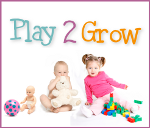I think that some standardized tests can be useful, but they shouldn’t be emphasized as much as they are. Some of these tests might be a good indicator of what children have been taught, but not always. There’s the issue of the children who are from other cultures. In many cases, they haven’t learned certain things that are apart of the dominant culture. If they were to take some of the standardized tests, they might not do well and test scorers would assume that they are less intelligent. However, they might be very skilled in other areas that weren’t on the test. Standardized tests don’t measure creativity, knowledge of nature, social skills, athletic skills etc. Many of these skills are necessary for careers later in life, but they are often pushed aside in favor of academic skills. We need creativity to be able to problem solve in almost any job. Not everyone is an athlete, but there are many jobs that require some level of fitness. In just about any job, we have to interact with others. Reading and math are important skills which we all need to learn, but why are children being tested on things they will never use? I remember questions about complicated math diagrams and concepts that I had never seen before. Being tested on information that someone has never been exposed to is pointless. It only proves that it hasn’t been taught. It doesn’t measure anyone’s intelligence or achievement. There’s also the issue of children with special needs not being able to complete some parts of the tests. How can we assess them in the same way? They might have the same level of skills and intelligence, but cannot complete the test in the format in which it’s given. Finally, focusing on preparation for standardized tests leaves less time for classroom teachers to introduce other areas of curriculum or to do assessments of their own. Children need more hands on experiences and should be assessed by those who know them and their learning style.
I found an article that describes the way they assess school age children in New Zealand. It sounds similar to ours except the tests are done by the teachers and have a direct impact on the children. For example, when children are assessed for the first time before entering school, the teachers learn how familiar children are with numbers and literacy. This helps teachers to better work with them individually and in groups. Next, the teacher starts a running record which still focuses on literacy. The child reads aloud while the teacher writes down what the child reads and does. This helps determine when a child is reading fluently. Once a child reads fluently, they no longer keep a running record, but introduce STAR testing instead. This only focuses on reading ability. It tests skills such as word recognition, vocabulary and paragraph and sentence comprehension. There is also a six year net observation survey which is given at age six. This is done one on one with a teacher and tests skills such as letter recognition, connecting illustrations with text, writing vocabulary, print awareness and listening skills. Finally, there are the PAT’s or Progressive Achievement tests which happen throughout school. These tests focus on reading ability, listening skills and math. These tests allow the teacher to compare a student to other students from across the nation and gives them ideas for what to focus on in future lessons.
Assessment at Primary
If teachers here in the US could use the results of standardized tests to better teach their students and aid them in developing lessons, having these tests would make more sense, but I think they’d have to be redesigned first. There are other ways to assess a child’s learning. Portfolios work well for preschoolers. Why couldn’t they work well for elementary school students? The portfolios could contain examples of their work such as writing samples and math worksheets. It could include art such as drawn pictures or paintings. For science experiments, larger art projects, social activities etc, they could include photographs to show what children have learned. Finally, to standardize it for making comparisons to children of the same age around the country, there could be a checklist of some type that would include all the skills covered by the portfolio. That way when comparing the effectiveness of schools and what children have learned, there’d be a simple tool to refer to without having to see the full portfolio. This system of assessment sounds like a lot of work, but it’s also a lot of work to prepare for these standardized tests that don’t show a child’s true intelligence.
Even Our Words Can Be "Loose Parts"
23 hours ago


Darcey,
ReplyDeleteI agree with everything you said! Especially in terms of special education students. They should not be expected to take the same test the general education students take. The same information can be covered, just in a format that is designed to fit their learning needs. I also agree that many of the social skills needed in the work force are not being measured and monitored as well as they should be. Children need to be taught how to handle themselves in a variety of social situations. We need to address these areas in schools too so we create a well rounded adult who is fully ready for the work force.
Portfolios would be a wonderful way to track student progress over time. It would provide a powerful example to the student of all the progress and growth they have made. Thank you for your post.
I have wanted to start portfolios but am not sure how to start them. Can you give me some advice???
ReplyDeleteI love your blog page. Thank you for sharing some helpful and important information.
ReplyDeleteI agree with you about Special Education.